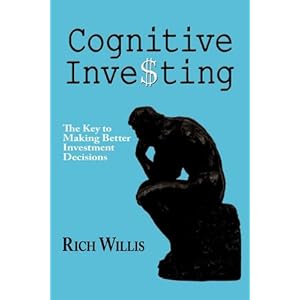Archive for December, 2011
Is investing a game? (part 3)
Posted by richwillis in Investing Wisdom on December 29, 2011
In part one of this series, we examined whether investing is a game. If you have not read that essay (https://cognitiveinvesting.com/2011/11/17/is-investing-a-game/#more-216), I suggest reading that first. In part two of this series we examined the question of whether investing is a negative-, zero-, or positive-sum game? I encourage you to read that essay (https://cognitiveinvesting.com/2011/12/14/is-investing-a-game-part-2/#more-231) also. The question we now turn to is whether investing is a game of luck or skill. How much is luck and how much is skill?
If I buy a stock and after a year it is higher, is that due to skill or luck? If it is lower, is it due to bad luck or lack of skill? One of the most common answers is to attribute all good outcomes to skill and poor outcomes to luck. That way our egos stay intact. It also saves us from having to make a true assessment of whether we are truly skilled at choosing investments.
But to get to the truth of the matter we need to risk deflating our ego and determine whether our decisions really are better or worse than average. Read the rest of this entry »
Is investing a game? (part 2)
Posted by richwillis in Investing Wisdom on December 14, 2011
In part one of this series, we examined whether investing is a game. If you have not read that essay (https://cognitiveinvesting.com/2011/11/17/is-investing-a-game/#more-216), I suggest you read that first. Once we established that investing is a game, it is instructive to determine whether the game has more winners or more losers. Said another way, is investing a negative, zero, or positive-sum game? Read the rest of this entry »
New math: One plus one equals four
Posted by richwillis in Uncategorized on December 2, 2011
[Note: This is an article I wrote for Forbes ASAP magazine near the beginning of the dot-com boom, and I thought it would be interesting to post it here on its 15th anniversary. Most of the ideas in this article have stood the test of time, with the exception of the reference to software. (It formerly required a physical package, unlike the Internet-based software that we have today.)]
In the information age, conventional mathematics is obsolete. Economics and accounting, which are based on an outdated version of mathematics, are likewise obsolete. The key is to recognize that information arithmetic is fundamentally different from object arithmetic. In the information age, one plus one equals four. Read the rest of this entry »
